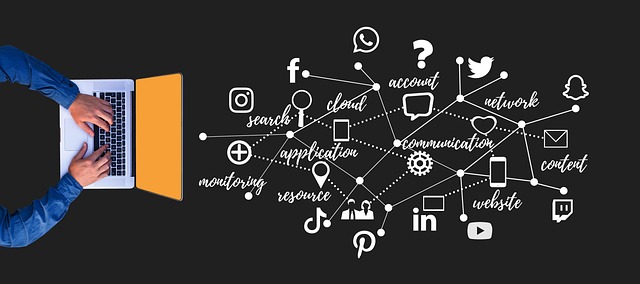AI Business Digital Twin technology is transforming operations in hospitality by creating virtual replicas of physical processes. AI guest occupancy forecasting utilizes historical data, real-time trends, and machine learning algorithms to predict future guest behavior with high accuracy. This enables hotels to optimize pricing strategies, enhance revenue performance, and improve guest satisfaction through proactive operational adjustments based on integrated data sources. By leveraging digital twin technology, hospitality businesses can revolutionize operations and guest experiences, achieving maximum efficiency and revenue.
In today’s digital era, Artificial Intelligence (AI) is transforming industries, and hospitality is no exception. AI Business Digital Twin technology offers a game-changing approach to optimize operations and enhance guest experiences. This article explores this innovative concept, focusing on its potential through AI Guest Occupancy Forecasting. We present a case study demonstrating how accurate predictions can revolutionize booking strategies. Furthermore, we guide hospitality businesses through the process of implementing and optimizing digital twins, showcasing their impact on profitability and customer satisfaction, with a particular emphasis on AI guest occupancy forecasting.
- Understanding AI Business Digital Twin Technology
- AI Guest Occupancy Forecasting: A Case Study
- Implementing and Optimizing Digital Twins for Hospitality Businesses
Understanding AI Business Digital Twin Technology

AI Business Digital Twin technology is transforming how businesses operate by creating a virtual mirror of their physical operations. This digital representation, or “twin,” allows companies to predict and optimize performance in real-time, leveraging vast amounts of data from sensors, IoT devices, and historical trends. In the context of hospitality, AI guest occupancy forecasting plays a pivotal role within this framework.
By integrating machine learning algorithms with operational data, AI digital twins can accurately anticipate demand patterns, identify seasonal fluctuations, and even predict unexpected changes in guest behavior. This proactive insight enables hotels and other hospitality businesses to enhance their resource management, improve revenue through strategic pricing adjustments, and ultimately deliver personalized experiences tailored to each guest’s preferences.
AI Guest Occupancy Forecasting: A Case Study

AI Guest Occupancy Forecasting is a powerful application of digital twin technology in the hospitality industry. By leveraging historical data, real-time trends, and advanced machine learning algorithms, AI models can predict future guest occupancy with remarkable accuracy. This capability allows hoteliers to optimize pricing strategies, manage inventory more efficiently, and enhance overall revenue performance.
In a case study, a major international hotel chain deployed an AI digital twin solution to improve their occupancy forecasting. The system integrated various data sources, including historical bookings, seasonal trends, local events, and even external factors like weather patterns. This holistic approach enabled the hotel to anticipate demand fluctuations and proactively adjust their operations accordingly. As a result, they achieved significant improvements in guest satisfaction and bottom-line profitability.
Implementing and Optimizing Digital Twins for Hospitality Businesses

Implementing digital twin technology in hospitality businesses offers a powerful way to enhance operations and guest experiences. By creating virtual replicas of physical spaces, hotels, resorts, and other accommodation facilities can optimize their management strategies. These digital twins integrate AI-driven guest occupancy forecasting models, enabling businesses to predict demand patterns with remarkable accuracy. With this predictive capability, hospitality providers can efficiently allocate resources, manage inventory, and personalize services for maximum efficiency and revenue.
Optimizing operations through digital twin technology goes beyond mere prediction. It involves real-time monitoring of key performance indicators (KPIs) such as room availability, guest satisfaction levels, and staff productivity. By analyzing this data, hospitality businesses can identify areas for improvement, fine-tune their strategies, and continuously enhance the overall guest journey. Moreover, digital twins facilitate what-if scenarios, allowing managers to experiment with different tactics without impacting actual operations, thus fostering a culture of innovation within the industry.
AI digital twin technology is transforming hospitality by enabling precise AI guest occupancy forecasting. As demonstrated in the case study, digital twins offer a powerful tool for optimizing operations and maximizing revenue. By implementing and continually optimizing these models, hospitality businesses can anticipate demand, improve room allocation, and enhance overall guest experiences. This innovative approach ensures that hotels stay competitive in today’s data-driven market, providing a strategic edge for long-term success.
